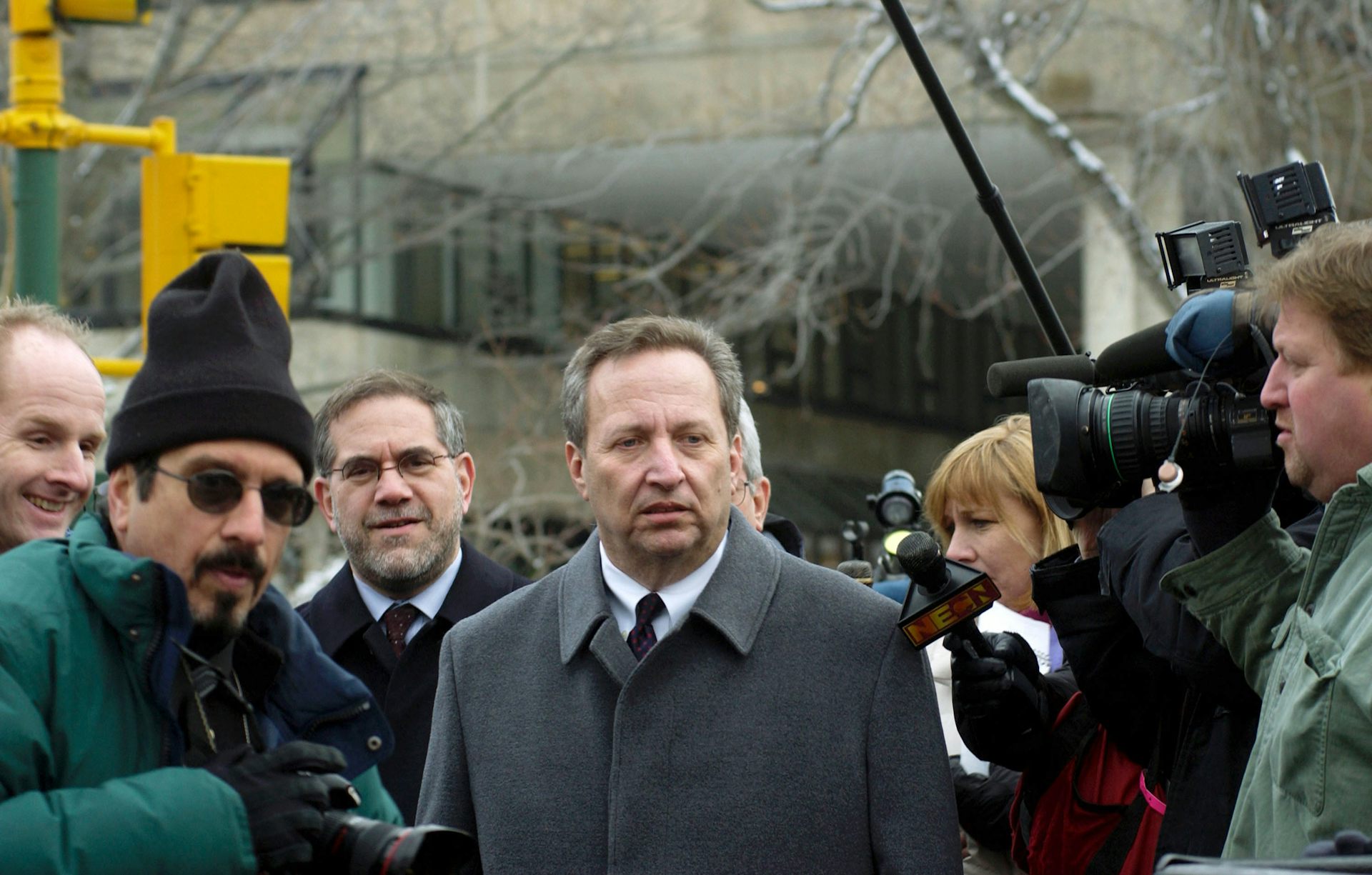After months of feuding, Ecuador's president is ousted by his party
Ecuador's new president, Lenin Moreno, has been disavowed by the party that brought him to power, after a harsh dispute with his predecessor.
After months of internal dissent and public feuding, Ecuador’s president, Lenin Moreno, has been kicked out of his party, the Alianza Pais.He will remain in office, though, and the decision – technically justified by Moreno’s absence from several party meetings – is being hotly contested within the party.
Moreno served as vice president for six years under Rafael Correa, the popular and charismatic founder of the left-wing Alianza Pais party. In April 2017, he was narrowly elected as the successor to Correa’s administration, which oversaw the most stable political period of Ecuador’s democratic history.
During his presidential campaign against the conservative banker Guillermo Lasso, there were already signs that Moreno was distancing himself from Correa. But at the time, these subtle political shifts seemed necessary to win an extremely tight race on a continent where the once-powerful Left is now ailing.
Now, after executing a shocking breakaway from both the Alianza Pais platform and its supreme leader, Correa, the party is taking action against him. This political turnaround is complicating Ecuador’s democratic transition and unraveling the powerful Alianza Pais.
The outstretched hand
Elected by just 2.3 points over Lasso, Moreno knew his administration would face serious challenges – among them, governing a highly polarized nation.
To tackle them, candidate Moreno seemed to think that demonstrating autonomy from Correa was a must-do. On the campaign trail, Moreno promised voters “national reconciliation,” “an outstretched hand” and “continuity with change.” Commentators took to calling this stratagem the “de-Correafication” of Ecuador.
Once in office, that process expanded. The president has now engaged every social and political force that Correa’s administration had considered “the opposition,” from the indigenous movement to the financial sector and media conglomerates.
Moreno has also held talks with opposition parties and the Ecuadorian Business Committee, a lobby that had urged the Correa government, which spent heavily on social welfare, to curb public expenditures.
Pivot time
Conversation led to action. Moreno acceded to financial sector demands that private banks be allowed to work with digital cash. In Ecuador, all electronic payments had previously been controlled by the central bank.
He also agreed to introduce reforms to the Communications Act that will protect freedom of expression, acquiescing to calls from media companies that for years did battle with Correa.
Finally, in a nod to austerity, the new president cut civil servant salaries, even though Ecuador ranks among the Latin American nations with the lowest public debt.
Such moves worry the Alianza Pais’s base, who fear that the president is subverting Correa’s self-declared “citizen’s revolution.” If so, he’s doing it without any clear political or economic vision. Moreno’s policies are so incongruous that the right-wing Lasso recently offered to “lend” the president his economic plan.
A public fued
It didn’t take long for Moreno and his powerful predecessor to begin publicly clashing.
In June, Correa began to “editorialize” the Moreno administration in opinion pieces in El Telégrafo newspaper. On Twitter, he implicitly criticized the president as having either a “short memory” or acting “in bad faith.”
Moreno responded in kind. In a public meeting in June, he said, “Now we can breath freely, slowly we will all shed our sheep-like behavior.” He added that “the table is not set…he [Correa] could have been a bit more reasonable about leaving things in better condition.”
The former president quickly took to the internet to condemn the president’s intractability, saying that Moreno’s actions would undo El Correismo – Correa’s self-titled political movement – bow to corporate interests and kill Ecuador’s citizen revolution.
Adding to the chorus was Moreno’s own vice president, Jorge Glas, a Correa insider. In an Aug. 2 public letter, he protested President Moreno’s rapprochement with conservative forces.
All this fueled the new president’s move to break away from El Correismo, even though just months ago Ecuadorian voters opted in favor of Correa’s legacy.
Irreconcilable differences
The resignation, in August, of several senior officials from El Correismo’s progressive wing showed that the government and the political movement were drifting farther apart.
On Oct. 30, Moreno criticized his predecessor’s media policies, which some journalists felt limited freedom of the press. “The media cannot be converted into propaganda tools for the government nor, much less still, a party or political movement,” he said.
He also promised to move forward with a referendum that seems aimed at overturning some of Correa’s reforms and boosting Moreno’s political capital among the conservative base he’ll now depend upon.
On Oct. 31, the growing schism within Ecuador’s Left became an irreparable separation. What happens next – to Alianza Pais and this president’s administration – is anyone’s guess.
A version of this article was originally published on Oct. 16, 2017.
Soledad Stoessel does not work for, consult, own shares in or receive funding from any company or organisation that would benefit from this article, and has disclosed no relevant affiliations beyond their academic appointment.
Read These Next
Iran will respond to US-Israeli strikes as existential threats to the regime – because they are
The latest attack on Iran goes far beyond previous operations by Israel and the US in both scale and…
Cuba’s speedboat shootout recalls long history of exile groups engaged in covert ops aimed at regime
From the 1960s onward, dissident Cubans in exile have sought to undermine the government in Havana −…
How the Seattle Seahawks’ sale will score a touchdown for charity 8 years after Paul Allen’s death
Selling a sports team is much more complicated than selling assets found in a typical estate, such as…






